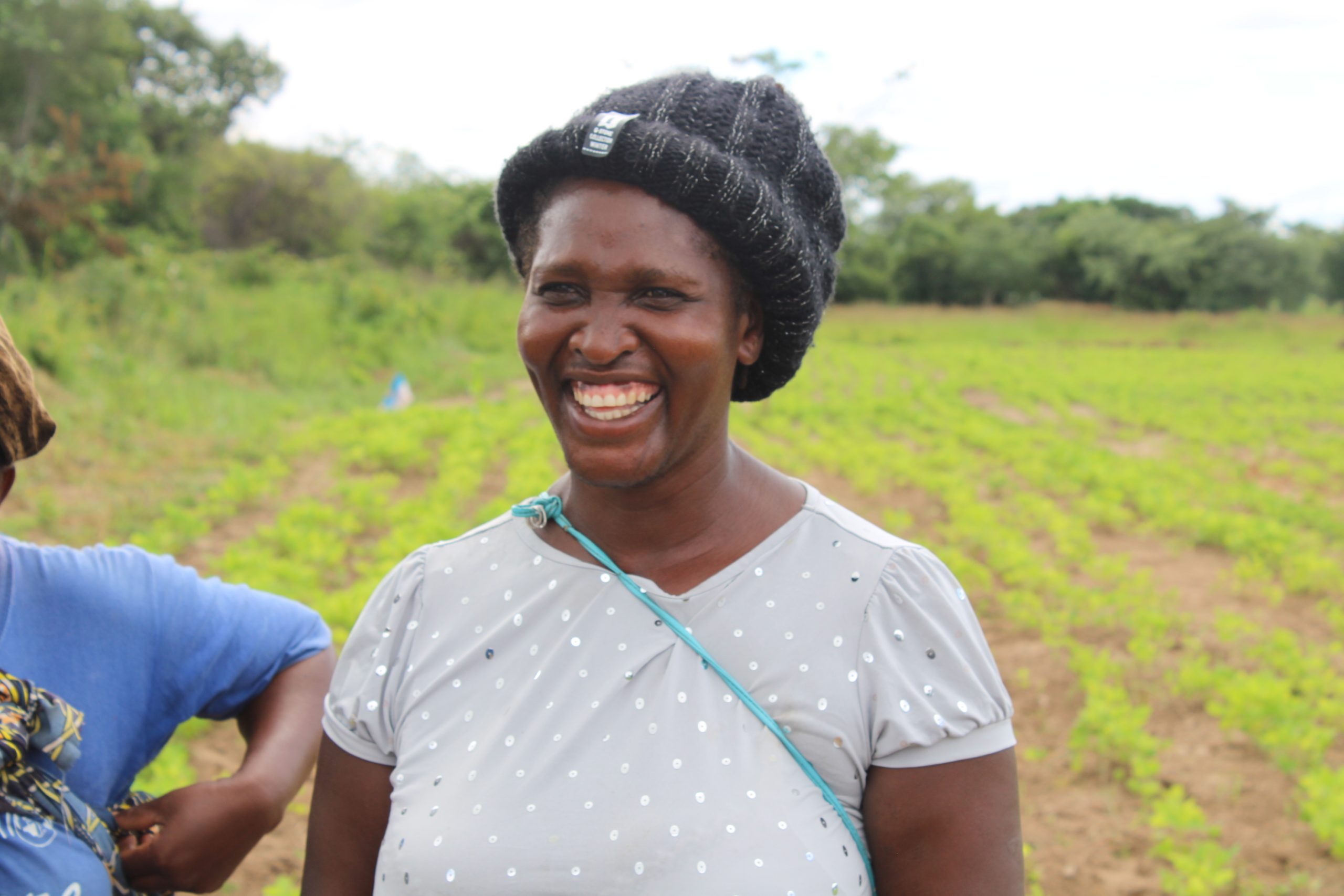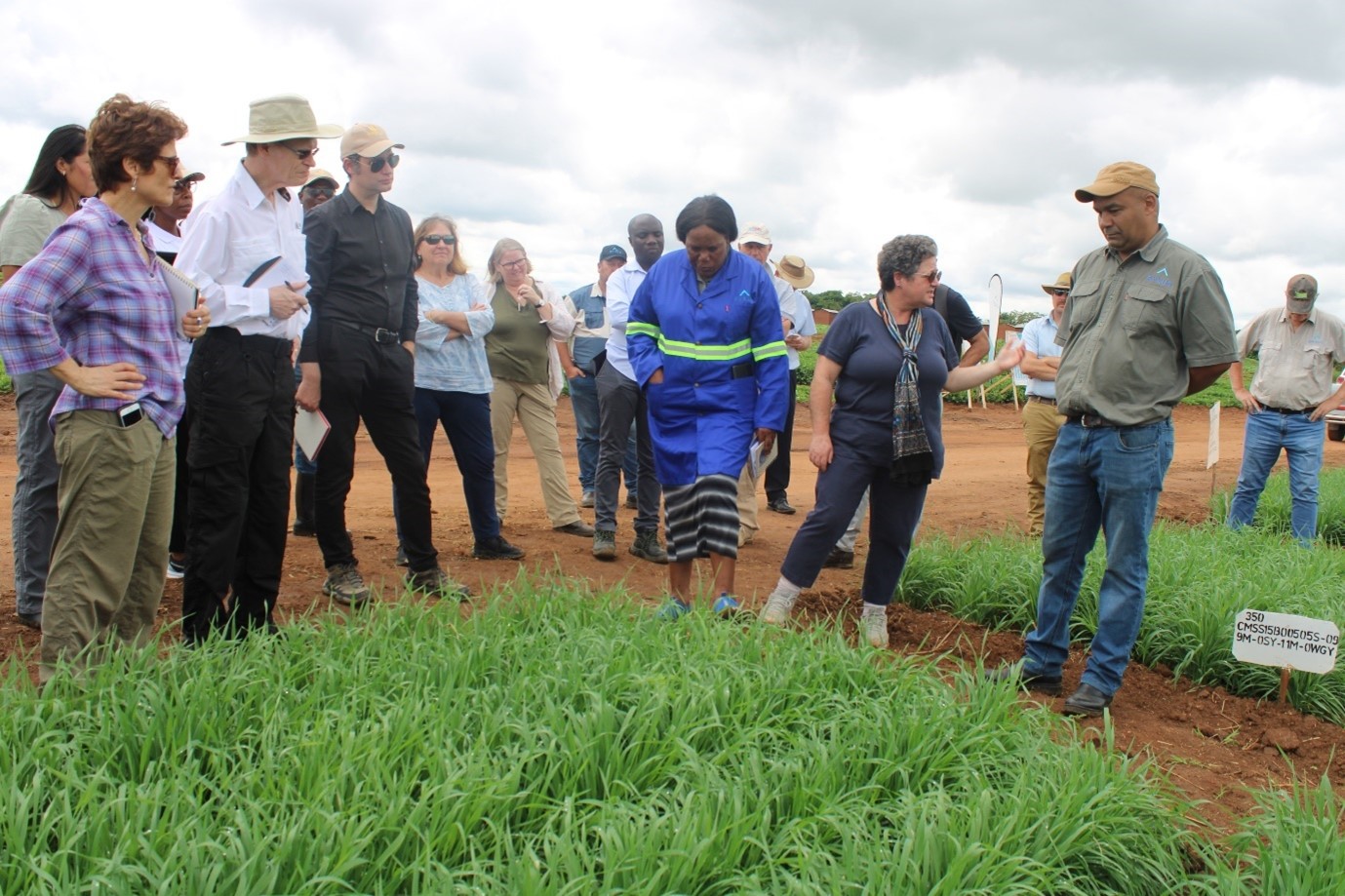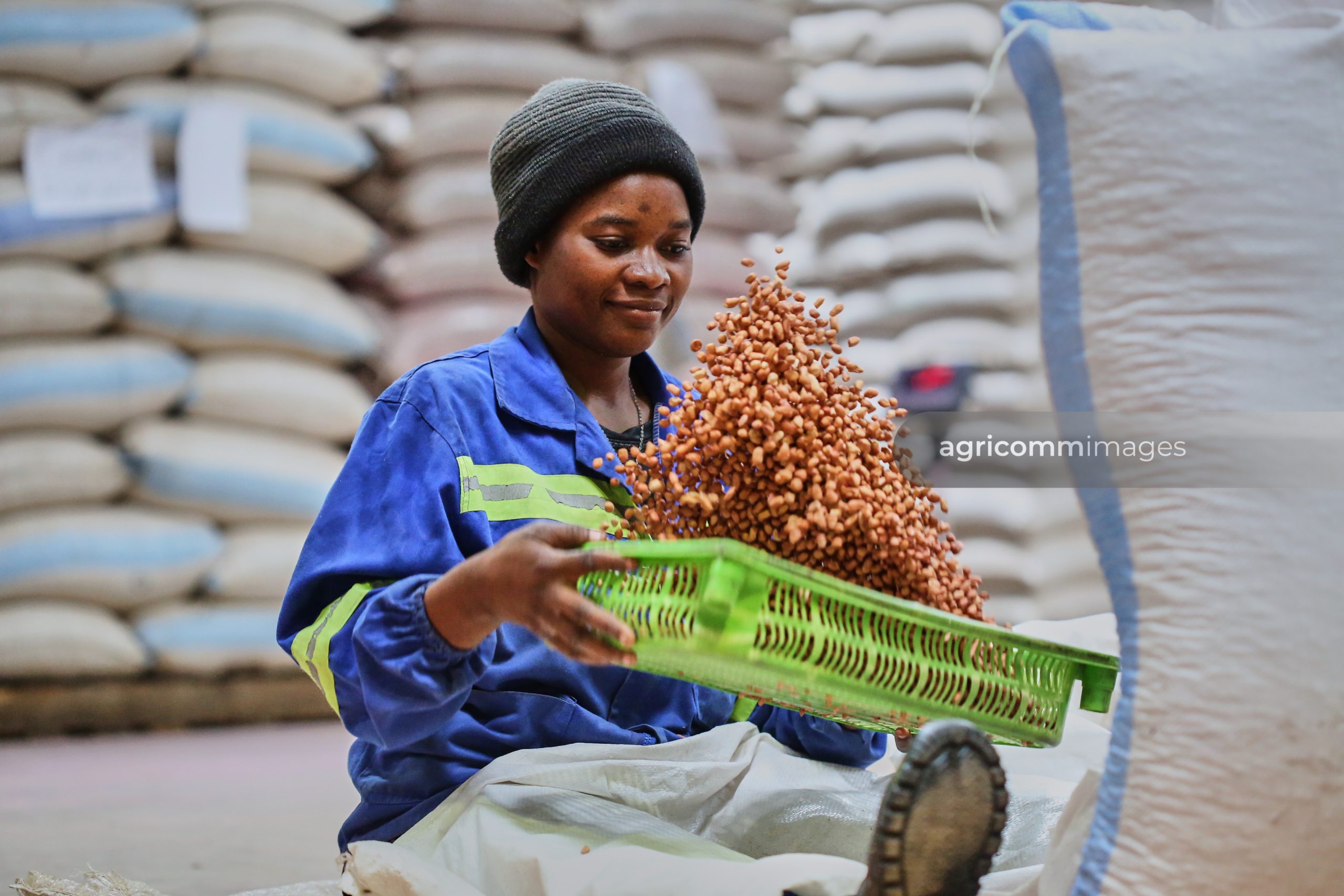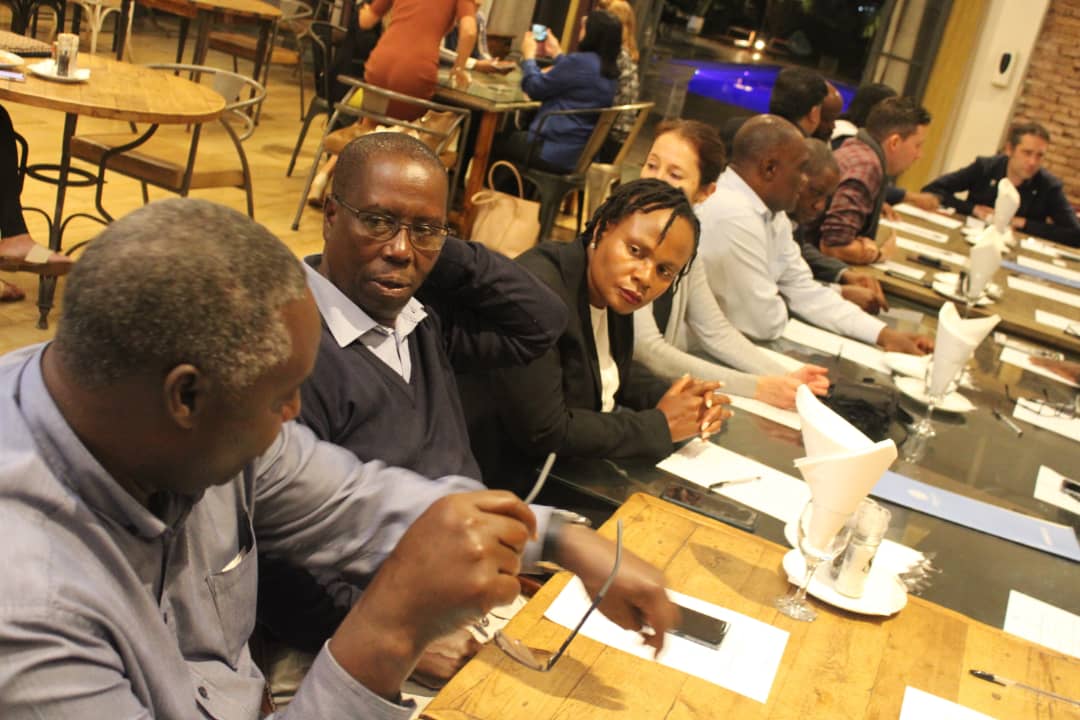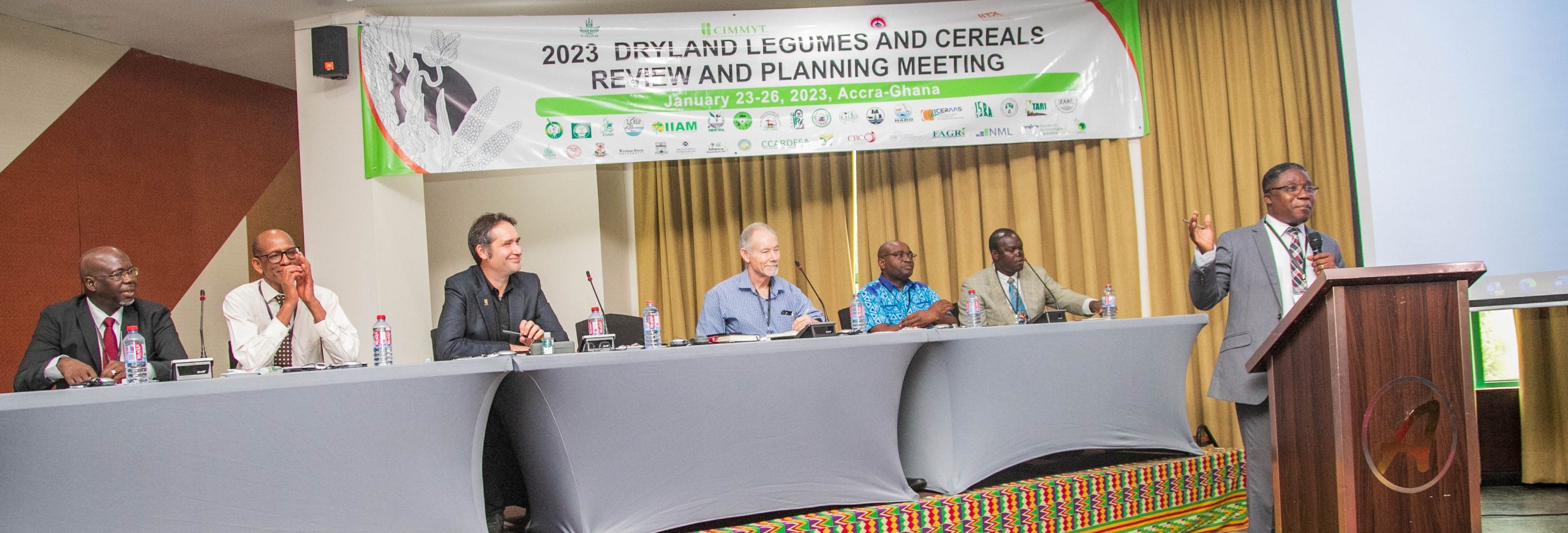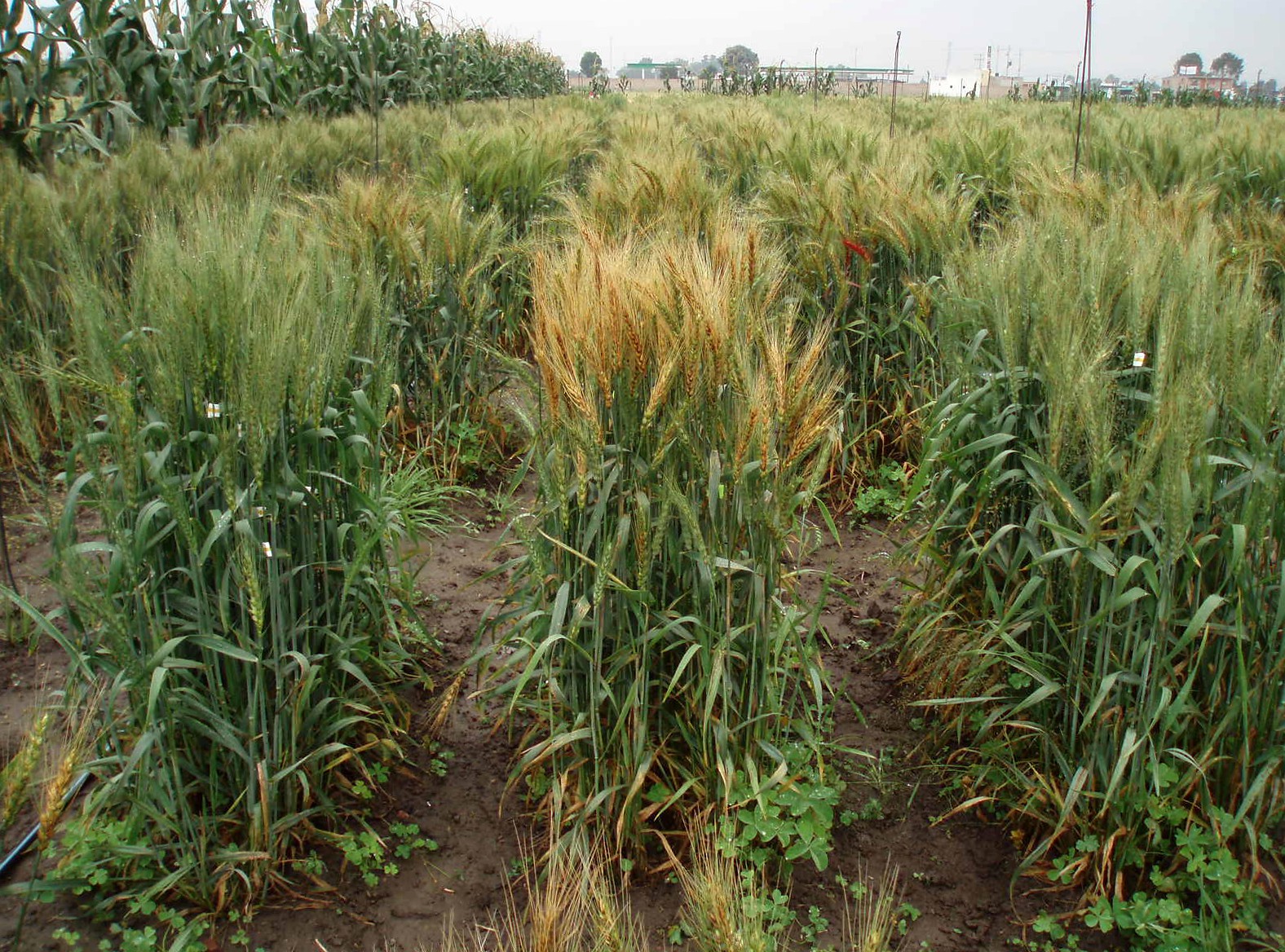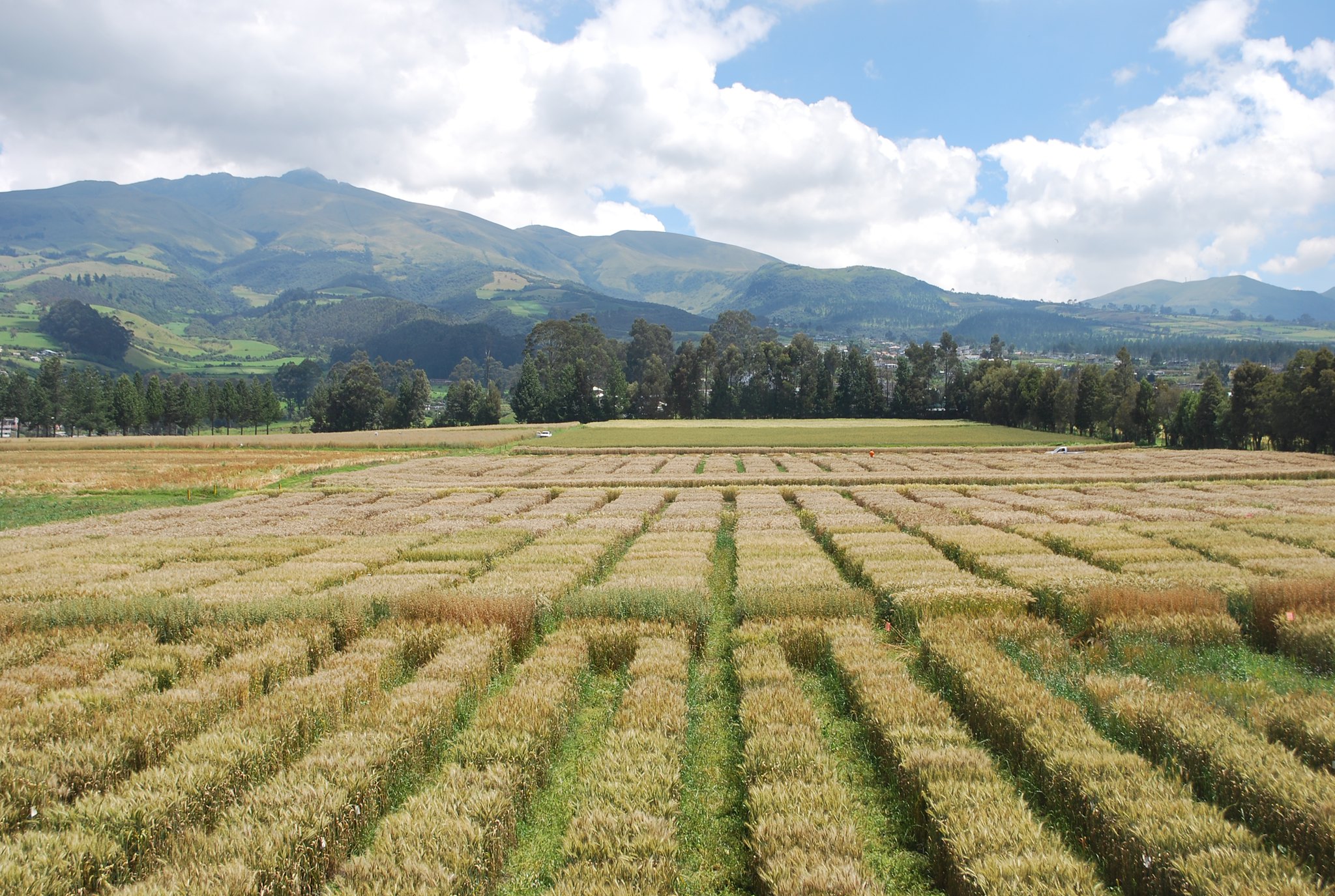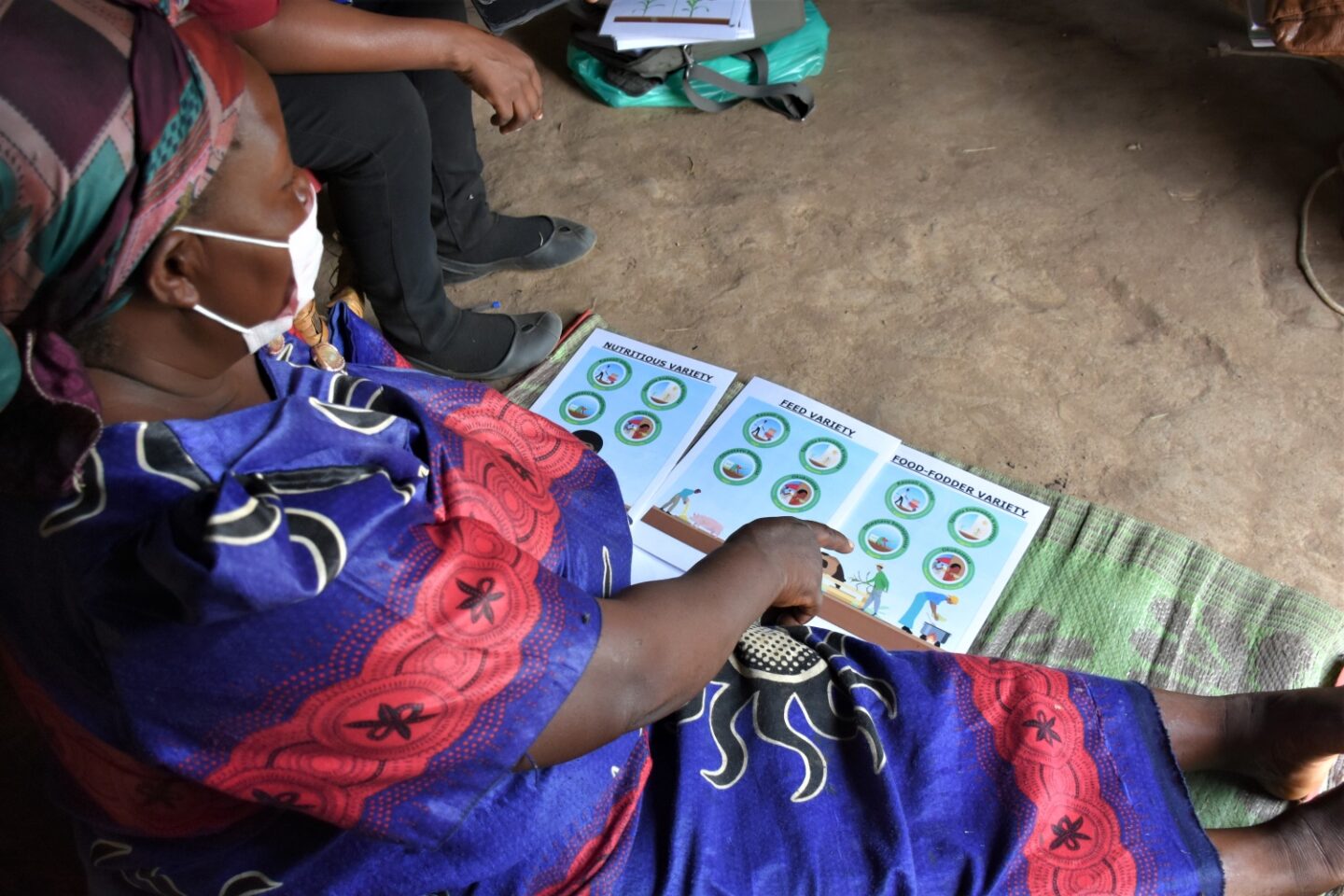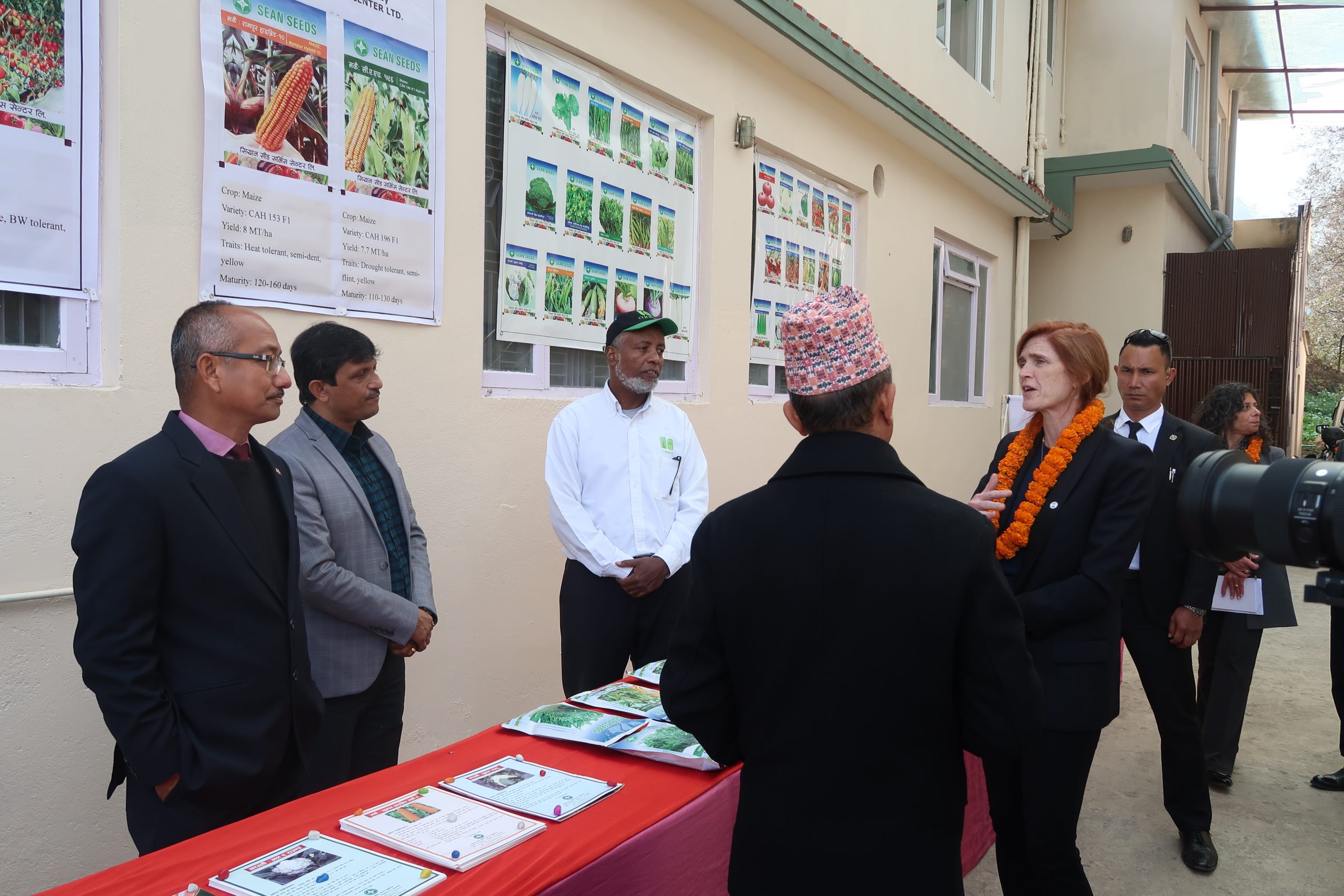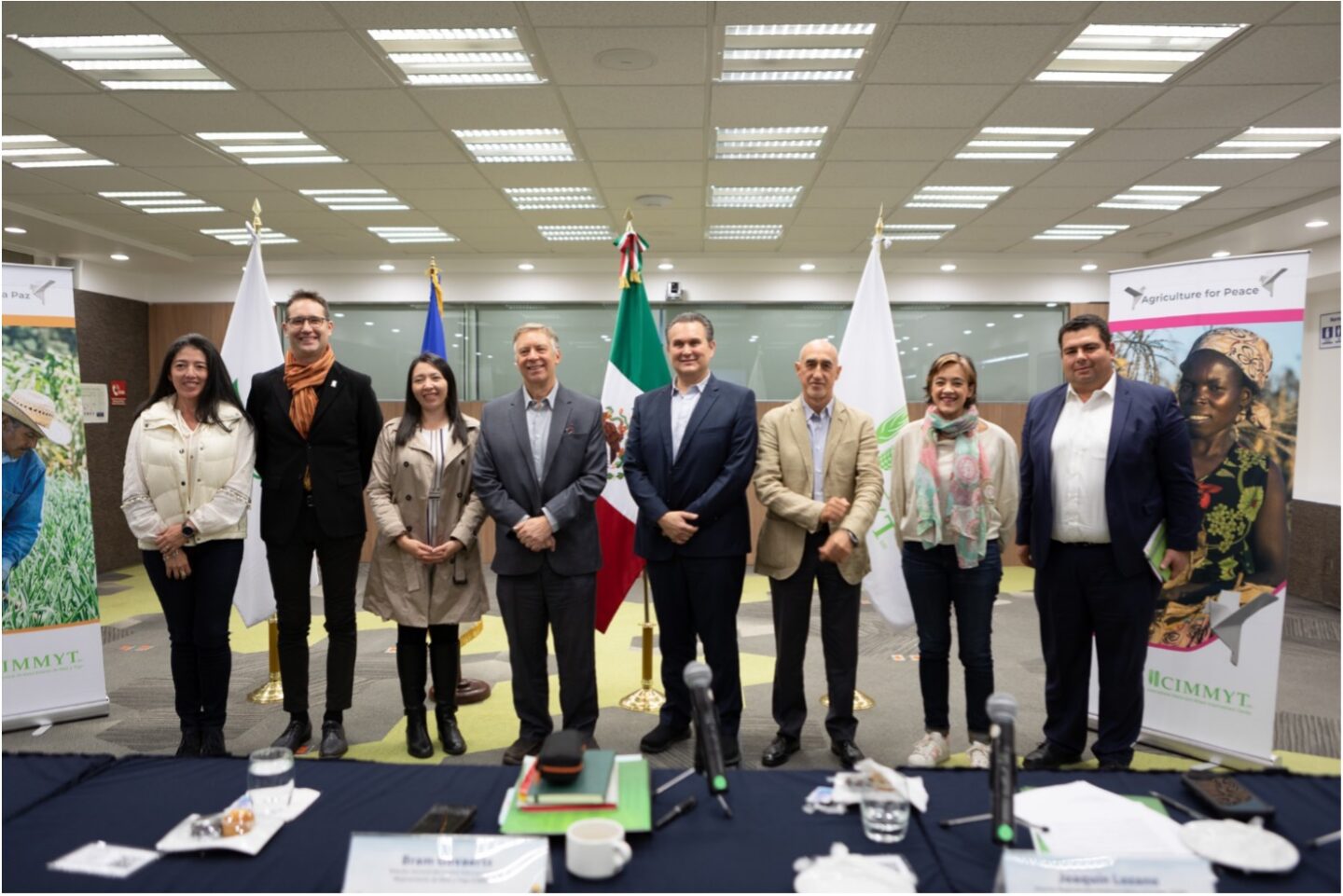Nutrition, health and food security
As staple foods, maize and wheat provide vital nutrients and health benefits, making up close to two-thirds of the world’s food energy intake, and contributing 55 to 70 percent of the total calories in the diets of people living in developing countries, according to the U.N. Food and Agriculture Organization. CIMMYT scientists tackle food insecurity through improved nutrient-rich, high-yielding varieties and sustainable agronomic practices, ensuring that those who most depend on agriculture have enough to make a living and feed their families. The U.N. projects that the global population will increase to more than 9 billion people by 2050, which means that the successes and failures of wheat and maize farmers will continue to have a crucial impact on food security. Findings by the Intergovernmental Panel on Climate Change, which show heat waves could occur more often and mean global surface temperatures could rise by up to 5 degrees Celsius throughout the century, indicate that increasing yield alone will be insufficient to meet future demand for food.
Achieving widespread food and nutritional security for the world’s poorest people is more complex than simply boosting production. Biofortification of maize and wheat helps increase the vitamins and minerals in these key crops. CIMMYT helps families grow and eat provitamin A enriched maize, zinc-enhanced maize and wheat varieties, and quality protein maize. CIMMYT also works on improving food health and safety, by reducing mycotoxin levels in the global food chain. Mycotoxins are produced by fungi that colonize in food crops, and cause health problems or even death in humans or animals. Worldwide, CIMMYT helps train food processors to reduce fungal contamination in maize, and promotes affordable technologies and training to detect mycotoxins and reduce exposure.
CIMMYT endorses and implements expert recommendations to drive the transformation towards Zero Hunger by 2050
 Nutrition, health and food security
Nutrition, health and food security
A new paper published today by experts at The Chicago Council of Global Affairs identifies the three main obstacles to global food systems transformation and hunger eradication by 2050.
Rapid modern wheat variety adoption key to supply chain security in Malawi
 Nutrition, health and food security
Nutrition, health and food security
CIMMYT experts collaborate with private sector to propel improved variety adoption in Malawi.
A seed systems success story
 Environmental health and biodiversity
Environmental health and biodiversity
Drought-tolerant maize seed thrives in Zambia through partnerships with the private sector.
Strengthening partnerships with government and private sector in Malawi
 Capacity development
Capacity development
CIMMYT-led event bringing private sector and government together is a success story of the power of collaboration.
Scaling impact of dryland crops research through regional crop improvement networks
 Environmental health and biodiversity
Environmental health and biodiversity
Scientists and stakeholders in Africa are co-designing a network approach to improve and expand dryland crops value chains in the continent.
China, Pakistan launched joint wheat breeding lab
 Capacity development
Capacity development
Source: Gwadar Pro (7 Mar 2023)
A joint lab for molecular breeding wheat research launches, with investment from China, Pakistan and CIMMYT.
Market Intelligence Briefs – a new publication series to inform crop-breeding decisions
 Capacity development
Capacity development
The CGIAR Initiative on Market Intelligence releases two reports on a framework for informing crop breeding and future market segments for hybrid maize.
Ethiopia’s Experience of Wheat Production Exemplary to African Countries: CIMMYT
 Nutrition, health and food security
Nutrition, health and food security
Source: Ethiopian News Agency (21 Feb 2023)
The partnership between CIMMYT and Ethiopia is improving wheat productivity through improved germplasm and access to mechanization.
Private sector support essential for agribusiness
 Nutrition, health and food security
Nutrition, health and food security
Seed company visit highlights the role private sector can play in accelerating agricultural transformation in Nepal.
The IDB and CGIAR discuss the importance of strengthening agrifood systems in Latin America and the Caribbean
 Nutrition, health and food security
Nutrition, health and food security
CGIAR’s Regional Office for Latin America and the Caribbean, in collaboration with the International Maize and Wheat Improvement Center (CIMMYT), organized an important roundtable discussion at the beginning of February on the Inter-American Development Bank (IDB) report entitled Competing in Agribusiness: Corporate Strategies and Public Policies for the Challenges of the 21st Century.
African smallholder farmers hit hard by global food shortage: expert
 Nutrition, health and food security
Nutrition, health and food security
Source: Africa Briefing (13 Feb 2023)
Bram Govaerts emphasizes the potential for agricultural development in Africa using nutritious indigenous crops.
